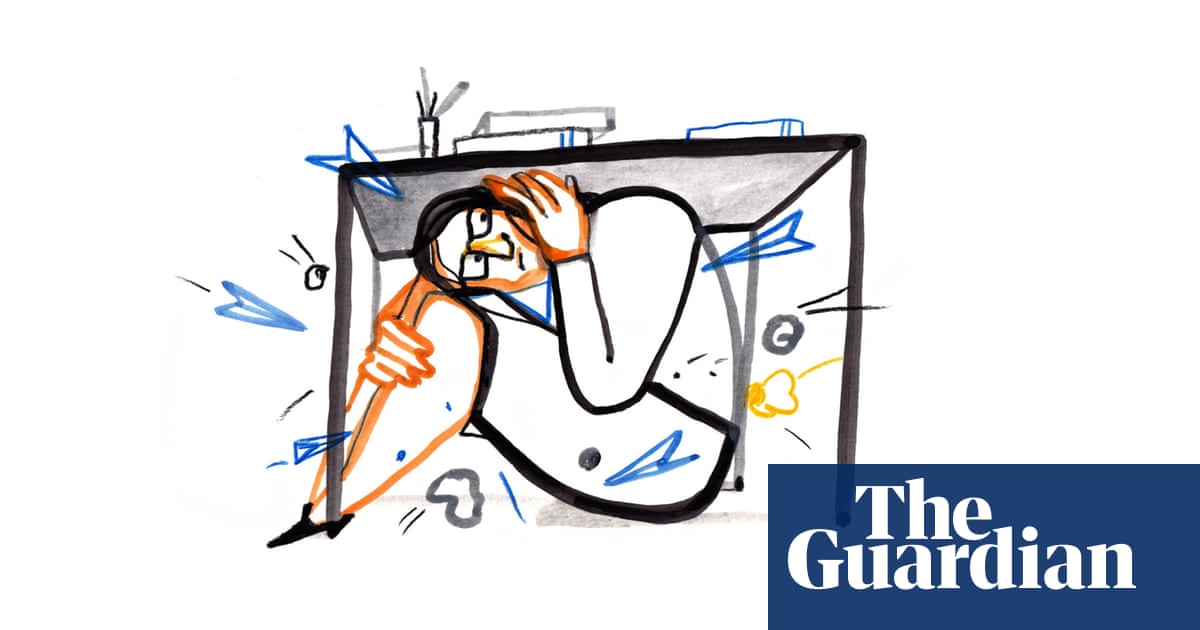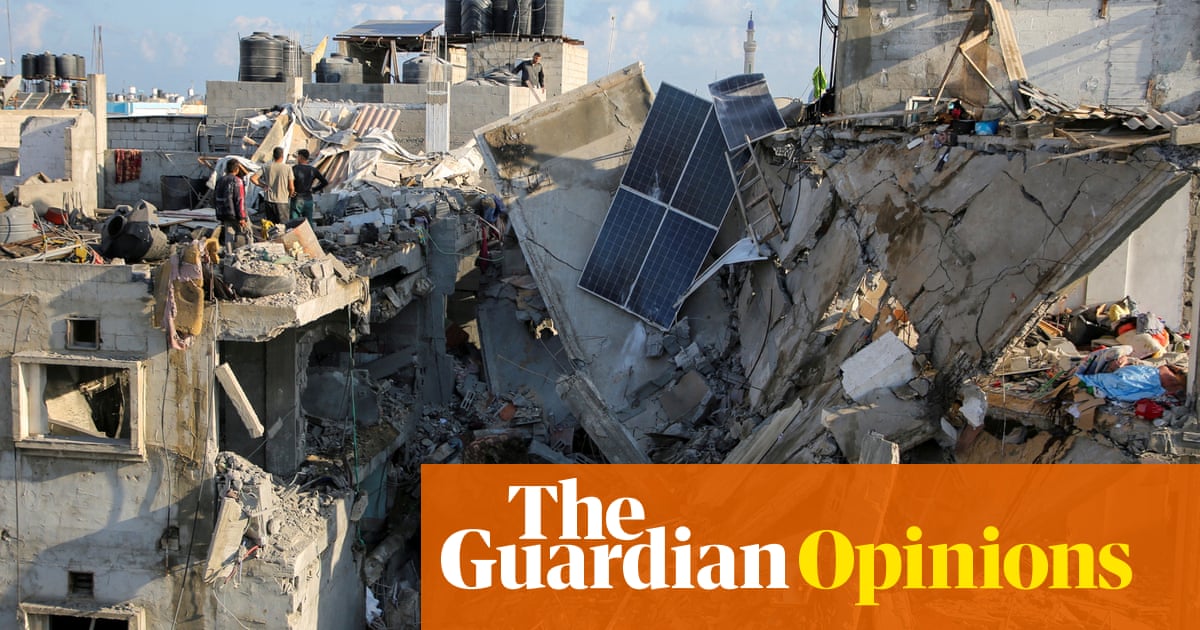
With his soulful gravitas, rich vocal tones and understated cool, Jeffrey Wright is one of those actors who brings dramatic heft to anything in which he appears. Which, these days, is an awful lot. He broke through on the New York stage, winning a Tony award for 1994’s Angels in America, then on screen with his portrayal of Jean-Michel Basquiat in Julian Schnabel’s 1996 biopic, and he has not stopped since. As well as voicing Marvel’s animated series What If…? he will be seen in the coming months as James Bond’s CIA buddy Felix Leiter in No Time to Die; in a new series of Westworld, and as James Gordon to Robert Pattinson’s Batman. Meanwhile, Wright has joined the Wes Anderson Extended Universe with The French Dispatch, a characteristically intricate hymn to New Yorker-style journalism. As we speak, Wright is in Spain working on Anderson’s next movie. “I feel I’m part of the travelling troupe now,” he says over Zoom, at the end of a day’s shooting
So how did you join Anderson’s troupe? I’m imagining an embossed invitation slipped under your hotel room door …
I got a call in the normal way from my agent. I hadn’t met Wes before, but he had seen most of the plays that I’ve done in New York city and I had no idea. He invited me to [renowned Parisian cafe] Le Select, and we had a nice lunch and maybe a bit of wine, and he described to me the film and this character, Roebuck Wright, which he had written with me in mind. He described the character as this kind of Frankensteinian mixture of nonfictional figures. He mentioned James Baldwin. He mentioned AJ Liebling, who was a food critic for the New Yorker. He mentioned a little bit of Tennessee Williams. It was fitting that we were at Le Select because that was one of Baldwin’s haunts.
That was the first meeting: very Wes. And he didn’t give me the script! He said he wanted, again in a very Wes way, to do a bit more work on it. So he sent it to me a couple of weeks later. And then I couldn’t stop reading it and thinking about it. It was almost like hearing a new melody on the radio that just stays with you immediately. One of the things about Wes’s movies that I appreciate is that they love language. Yes, they’re intensely visual in a way that’s very specific to his signature, but he also is someone who’s not afraid of language in film. Somebody offers me some good words, well-placed commas, strong ideas, nice poetry, nice music – it’s an easy sell.
Your character in The French Dispatch claims to have a “typographic memory”. He remembers everything he ever read or wrote. How’s your memory?
It’s funny you asked me that question because I had about three pages of monologue to deliver today. So I’ll say, it may not be what it once was, but it’s still functional. And it needs to be with Mr Anderson. He kind of insists that it be. I think that may be part of the reason I’m here.
Your story in the film is framed by a chatshow appearance by your character some years later, which brought to mind Baldwin’s amazing appearance on the Dick Cavett show in 1969.
Baldwin was a forceful persona in those spaces. There was a dramatic intent behind him that was connected deeply to his language and his words, but there was a performative quality to it as well that was just stunning. This character is an homage to Baldwin but he’s not biographical in any sense. Because my character, with his focus on food, veers away considerably from Baldwin’s focus on culture and politics, particularly as they existed in the US during the civil rights movement. Baldwin, obviously, was an expat, and a Black man, a gay man, at a time in the US where there were limitations placed on how he might define himself or his freedom. And so he made his way to Paris.
Critics often accuse Anderson’s films of being apolitical. Is this effectively a depoliticised Baldwin we’re getting here?
Well, this is not a biography of James Baldwin, let’s be very clear about that. This is a man who has come to this town to escape, but also to find something there that connects him to himself. And I began to wonder if just the decision to be free on his own terms isn’t, in itself, defiantly political. And I wonder if his search for some type of grace – and his celebration of beauty where he can find it – is not also deeply political. Particularly now, and at the time when we were making this film, when in the US there was this relentless, grotesque debasement of language, of thinking, of journalism, specifically of writers. I wonder if the celebration of those things is not, in some ways, a manning of the barricades in and of itself. Maybe it’s one of the most powerful things we can do, when faced with as much vulgarity as we’ve been faced with in the last few years.
Your character also seems tragically lonely. I was wondering if you felt the same over the past year, which you spent much of stuck in the UK trying to shoot The Batman during the Covid lockdown?
We started filming The Batman in January 2020, shut down in mid-March and came back to London that September. And I was there, except for a quick trip home around the election and another break for Christmas, till March. My daughter was with me for the first six or so weeks [Wright has a daughter and a son by the British actor Carmen Ejogo], so that was quite nice because she was on remote schooling and she only had to be up for class by noon. But, after that, I was pretty much isolated, and on lockdown for the next six months, in a more-or-less empty hotel that began to remind me of the hotel from The Shining. I don’t like complaining about working on films. I enjoy this work and there’s a good deal of privilege that comes with it, but the isolation away from family and at a time of such a crisis was a little tricky.
Was there anything new you learned about the UK during your protracted stay?
We were north of London [close to Warner Bros Studios in Leavesden, Hertfordshire]. And I learned that the majority of food I was able to find outside the hotel, late at night after work, was curries. Not much else to be found aside from curries! So, you know, I gained appreciation for that. Also, I’ve spent a lot of time in the UK, but man, I still don’t think that I have acclimated to that deep London winter. I tell you, London does teach me an appreciation for the value of the sun and sunlight.
You seem to be a fixture of so many franchises these days. The Hunger Games, the DC camp with Batman, the Marvel camp with What If…? and the Bond camp. How did this happen?
It’s completely the accident of good fortune. I guess, having been around before for a couple of rodeos, people have seen me riding a bull or two and they say: “Hey, would you like to join this circus?” And I say: “Yeah, sure!” And each of those franchises, they’re very successful, sure, but they’re offering some good collaborators, first and foremost. That’s become most critical to me. And it doesn’t hurt that there’s kind of a built-in passion for these films. It’s always much more gratifying to be a part of a project that people want to see, as opposed to those that they don’t want to see.
We will be seeing you again very soon in No Time to Die, Daniel Craig’s final Bond movie. Did it feel sad to reach the end of that road?
Well, I can’t speak to Daniel’s feelings but I can say that, from my perspective, it’s been a joy to watch him evolve with this role, and with the responsibility of it. Because you remember, at the beginning – and this was before the intensity of social media – there was so much negativity, so much nonsense opinion about what he would be able to do. I was doing a film with Daniel when he first got the role, a [2007] film called The Invasion. So I was with him at the very start of it, and he’s grown into it with a lot of wisdom, with a lot of grace, put a lot of himself into it. So I’m really proud of what he’s done, and it was great to be back with him and, you know, ride the thing together. At the end of the day, he’s the victor.












